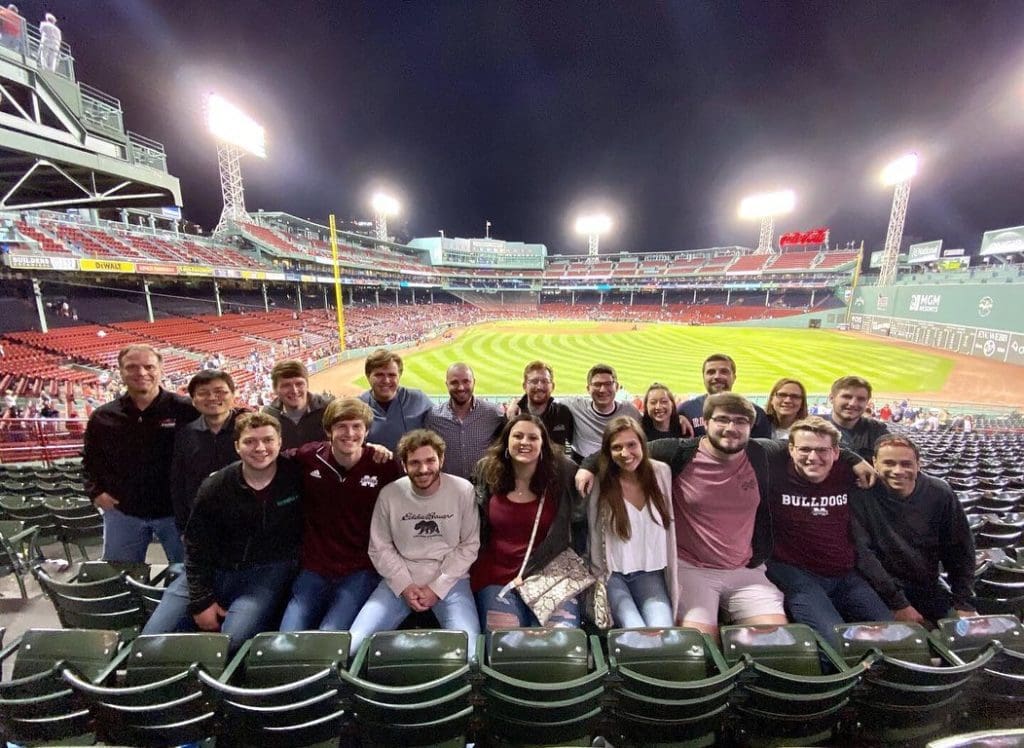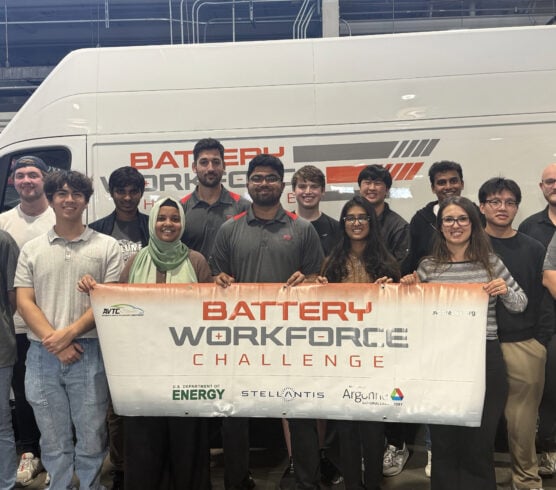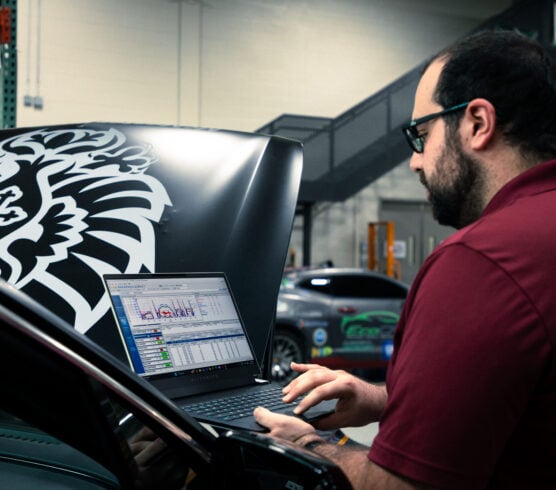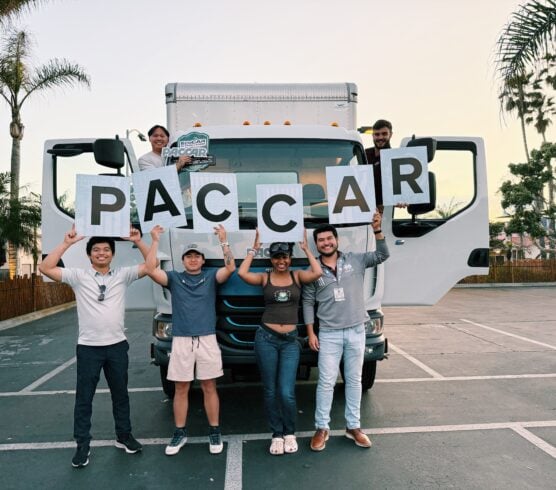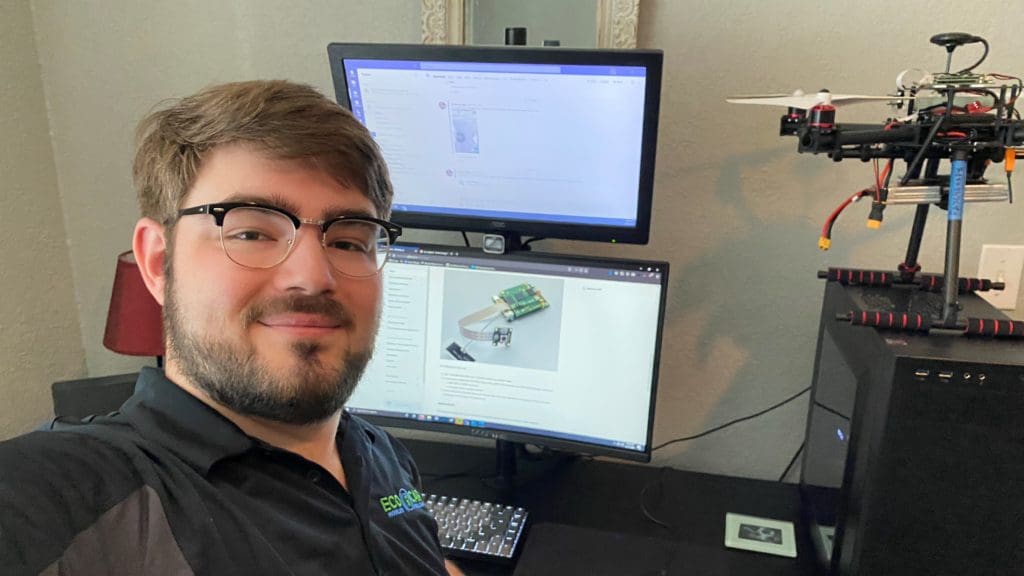
Internships are incredibly valuable for gaining experience, building your network, and ultimately helping you land a dream job in your chosen sector. This summer, various EcoCAR students have spent the past few months adjusting to a virtual setting for internships with sponsors.
We recently caught up with Landon Haugh, who is a senior at Mississippi State University, and has been a virtual intern for leadership-level sponsor NXP. Learn more about Landon and how he landed his current internship and still received the traditional intern experience below.
Q: What is your role on your MSU EcoCAR team?
I have been a part of MSU EcoCAR since EcoCAR 3. In EcoCAR 3, I was on the controls team. I worked on a few small projects, most notably on Diagnostic Trouble Codes in the Camaro.
In Year Two of the EcoCAR Mobility Challenge I became the MSU EcoCAR CAVs Undergraduate Lead. My duties in this position were to manage the software development and subsystem design of our CAVs architecture. I wrote code for sensor data collection and sensor fusion in Python, and data visualization in MATLAB. I have since stepped down from this position to help transition the CAVs team to new team leads before I graduate from college this November, but I will continue to be a part of the CAVs team and will be working on our implementation of SAE Level 2 automation in Year 3.
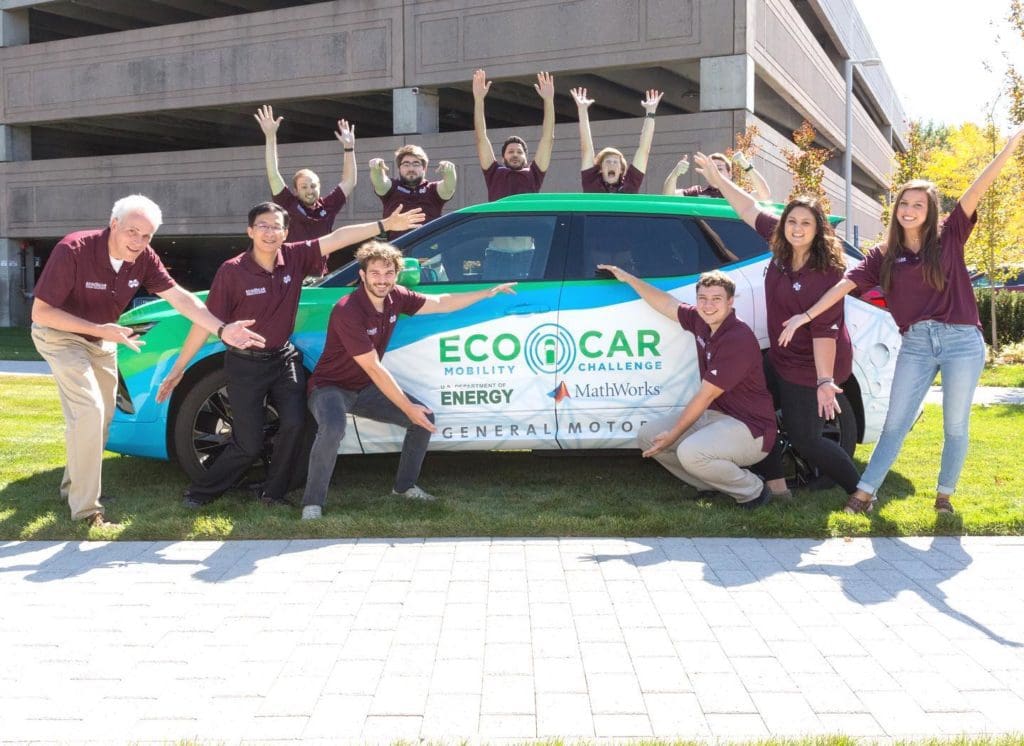
Q: What was your experience like during your internship with NXP?
My experience with NXP has been a dream come true. I grew up participating in my high school’s FIRST Robotics Competition team (Team Fusion 364) and have mentored them since I graduated high school.
My experience with FIRST helped me find my passion for robotics. With that said, getting a job in the robotics space has been my career goal since I was a freshman in high school, and my internship on the Mobile Robotics team at NXP has been an amazing opportunity to further my experience in the robotics field.
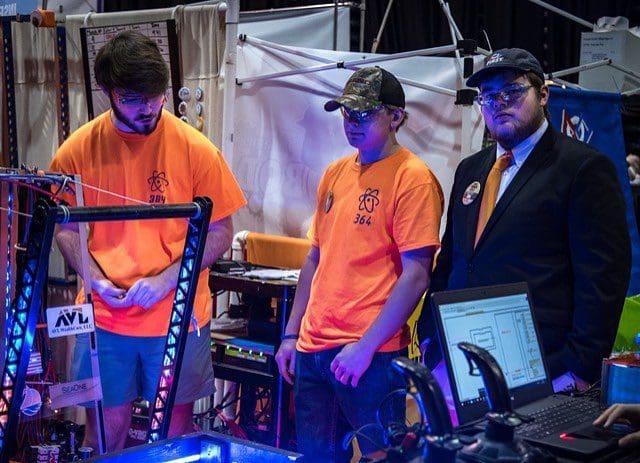
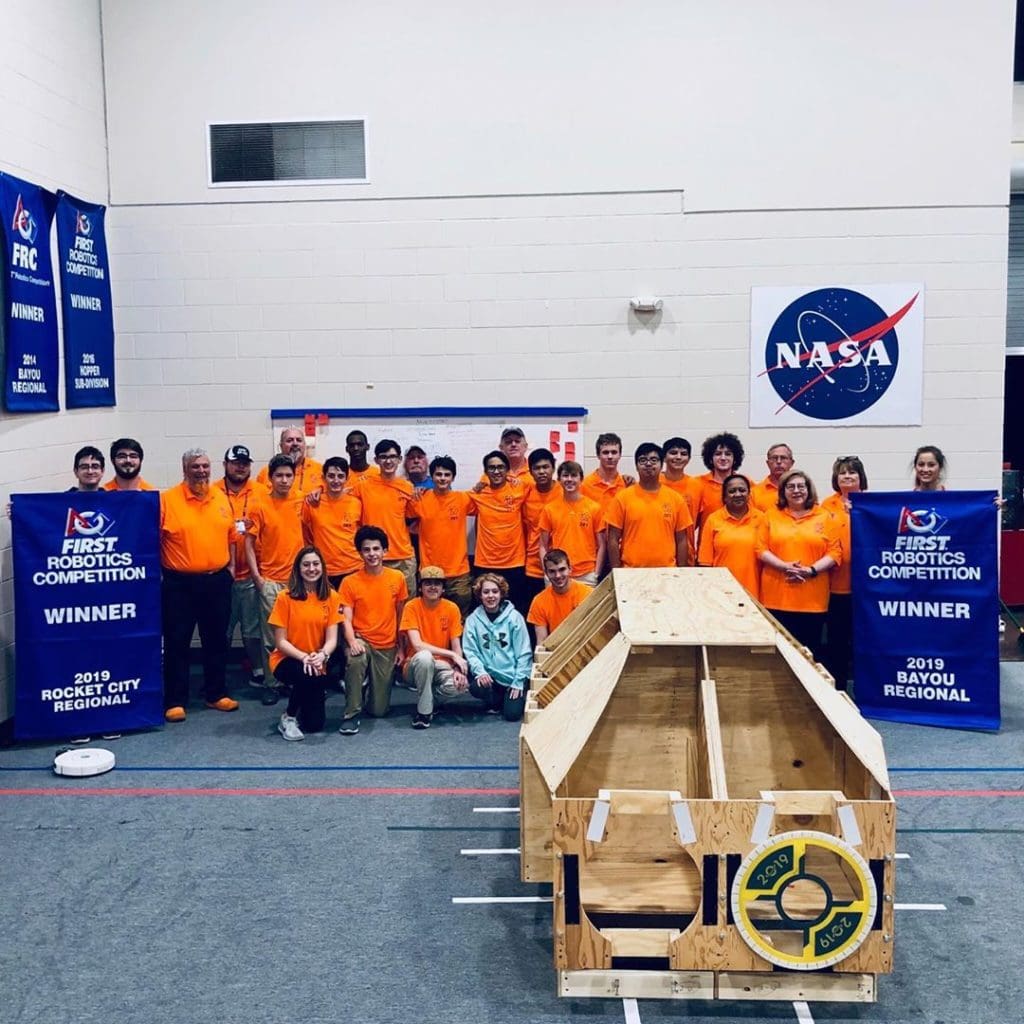
Q: How did you gain your internship?
I was initially contacted by NXP after putting my resume in the EcoCAR resume book and had the opportunity to speak with a representative while at the Oakhill campus during Winter Workshop in February. I went through a few rounds of interviews and ultimately secured the internship for Mobile Robotics Development at NXP! I have gained a ton of knowledge of the embedded systems and robotics field while at NXP. This experience has allowed me to get my foot in the door in those specific fields – fields that I have wanted to get into since I was a freshman in high school.
Q: What projects did you work on during your internship?
During my internship, I have mainly worked on a new companion computer for NXP’s HoverGames called the NavQ. The NavQ is an embedded computer based on NXP’s i.MX 8M Mini, and is designed for use in the robotics space with connectors and I/O that are compatible with the DroneCode standard that is used in NXP’s HoverGames FMU (Flight Management Unit). This project was a particularly great experience because not only does it have a great application for robotics, but the embedded systems field is one that I’ve wanted to learn more about after taking an embedded systems class in college.
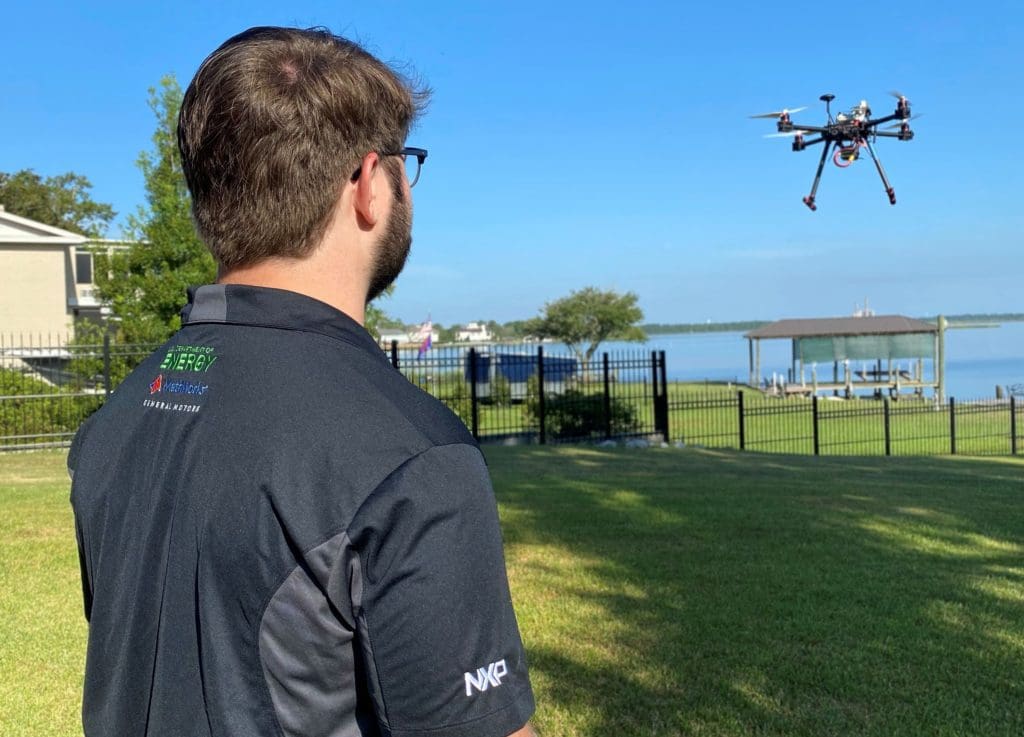
Q: What were the outcomes of your projects?
The outcome of my work on the NavQ project at NXP has been a huge success. My main focus was the bring up of a friendly Linux solution for the NavQ, which allows for easy mass market adoption of the product.
Typically with NXP hardware, a minimal focused Linux distribution is built for each specific hardware platform using a build system called Yocto. The NavQ is unique in this regard because we have been able to build a more general-purpose Linux distribution that still uses the Yocto build management tools but incorporates the commonly used Ubuntu filesystem. This allows for software like Robot Operating System and the `apt` package manager to be easily used on the system, which makes rapid iteration and development much easier on the NavQ. These features have the potential to push the product into a more diverse market that includes both hobbyists and companies because of the platform’s ease of use.
Q: What was your favorite part of your internship?
Being able to work on a product that will have such a large impact on the drone and robotics space has been the most exciting part of my internship. Being able to develop software to make the HoverGames drone fly autonomously using NavQ to showcase its ability has also been a super fun project.
Q: What are your plans after your internship?
Since the internship has been a remote position, NXP graciously extended my internship on the Mobile Robotics team until the end of 2020 (as a part time intern) while I finish school! After my internship is over, I hope to find a full-time position at NXP to start my career.
Q: Is there any advice you would give to someone looking to join at EcoCAR team?
Being a part of EcoCAR has been an amazing experience. To be able to research and implement features such as SAE Level 2 Automation in a Chevy Blazer is one of the best opportunities for an engineering student I can think of. Without EcoCAR, finding an internship opportunity like the one I have now would have been very difficult. The networking opportunities through EcoCAR are incredible. Students are able to collaborate with engineers from top companies and make relationships with them which can spark a student’s career path. If there are any students that are considering joining their university’s EcoCAR team, I highly recommend doing so! Even if you’re an undergrad with a heavy workload, just going to your team’s EcoCAR meetings and soaking up information and knowledge is super beneficial!
